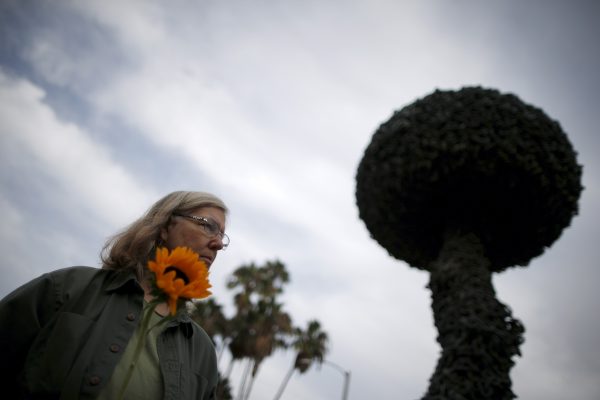— especially against any adversary with the capacity to launch a nuclear attack on the US homeland. And like him I think that strategic policy should not be based on an illusion.
Where we disagree is over the wider consequences of such a declaration. An NFU declaration would weaken the United States’ strategic position in Asia by weakening its key alliances there — especially with Japan. That is because Japanese leaders and policymakers genuinely seem to believe that the implied US threat of first use helps deter China in a way that conventional US forces cannot.
Ramesh finds this hard to believe. He suggests that Japanese policymakers could not be as ill-informed as to take the implied US threat seriously. Or, for that matter, to imagine Beijing would take it seriously enough to be deterred by it. This is a possibility, but he has more faith in the rationality of strategic policymakers than I do.
To me the evidence clearly suggests that the Japanese really believe in first use. If not, why has Tokyo objected so strongly to the idea of an US NFU declaration? Why has the Obama administration apparently backed away from an NFU declaration for a second time, if not out of concern for the reaction of key allies like Japan?
And if Japan really does think the United States’ first use threat is important to their security, then we have to accept that an NFU declaration could have some unwelcome consequences. It would weaken Japan’s confidence in the United States’ security commitments, and strengthen the arguments in Japan to build an independent strategic posture, including its own minimum nuclear deterrent capability.
This would obviously be a very serious consequence and for some it would provide a decisive argument against an NFU declaration. Ramesh perhaps assumes that I think that way. But on the contrary, I think the United States should make an NFU declaration despite this risk, precisely because it would dispel the United States and its allies of their ‘first use illusion’. That is a good thing to do in itself and worth the risk because the first use illusion is dangerous and destabilising.
How so? The idea that the United States can credibly threaten to use nuclear weapons first is a key pillar of the wider illusion that the United States enjoys unchallengeable military preponderance against major adversaries like China and Russia.
That wider illusion in turn encourages the United States as well as allied policymakers and analysts to underestimate the likelihood that these regional rivals would risk a military conflict. It leads them to assume that Moscow and Beijing also believe that US military power is unchallengeable and so can be relied upon to avoid a confrontation.
That in turn leads them to underestimate the need to modulate the United States’ own conduct to avoid a confrontation. This increases the risk of a confrontation occurring, leading to a conflict in which nuclear weapons could actually be used.
These are not remote or hypothetical risks. If an NFU declaration helps to reduce them by injecting more realism into US assessments of the military balance, then that would be a good thing. It might indeed be a more important consequence of an NFU declaration than the slight nudge it would offer to the hope of eventual nuclear abolition.
Hugh White is Professor in the Strategic and Defence Studies Centre at The Australian National University.

